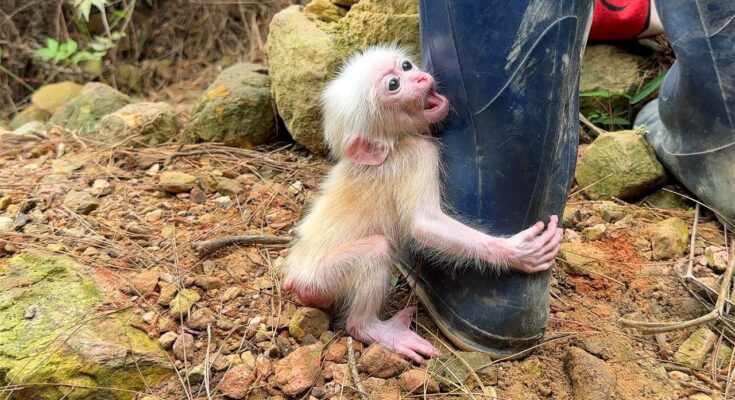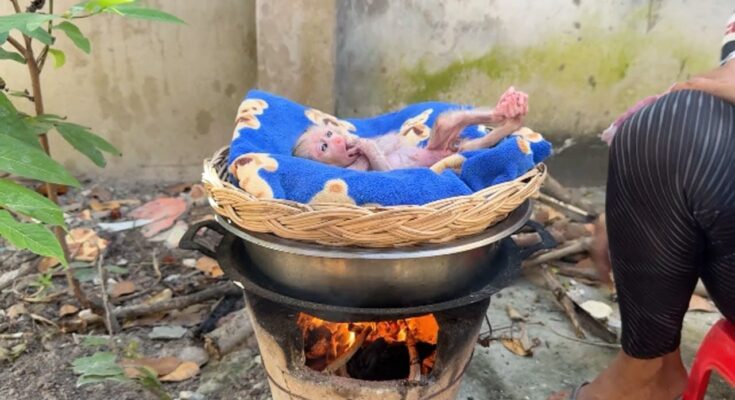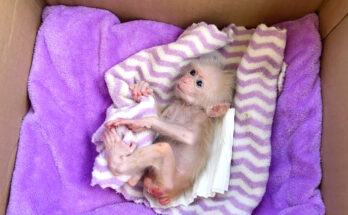
Feeding a pet monkey isn’t as simple as it seems. Discover the right diet to keep them healthy and happy!
Why You Should Care About Feeding Baby Monkeys: A Guide to Their Survival
Baby monkeys are delicate creatures, heavily dependent on proper nutrition during their early stages of life. Whether they are in the wild, a rescue center, or raised in captivity, feeding baby monkeys is about more than just food—it’s about ensuring their growth, development, and survival.
The Importance of Feeding Baby Monkeys
- Nutrition for Growth:
Baby monkeys require a balanced diet rich in nutrients to support their rapid physical and mental development. Without proper nutrition, they risk stunted growth and developmental issues. - Building Immunity:
A healthy diet helps strengthen their immune systems, protecting them from illnesses and ensuring they thrive in their environment. - Bonding and Comfort:
Feeding time is a bonding experience. For orphaned or rescued baby monkeys, feeding offers a sense of comfort and security, mimicking the care they would receive from their mothers.
What to Feed Baby Monkeys
- Milk Replacements: Infant formula specifically designed for primates is crucial in the early months.
- Fruits and Vegetables: As they grow, soft fruits like bananas, papayas, and mangoes are introduced to their diet.
- Protein Sources: Boiled eggs or specially formulated pellets can provide the protein needed for energy and strength.
Why Your Support Matters
Many baby monkeys face challenges like habitat destruction and orphaning. By learning about their nutritional needs and supporting conservation efforts, you play a role in giving them a second chance at life.
Would you care for a baby monkey if you had the chance? Let us know in the comments!
Mom Put Newborn Baby Monkey On Steam F-r-i-ed For Traditional Treatment

Discover Fascinating Facts About Baby Monkeys 
Looking to learn what makes baby monkeys so adorable and intriguing? From their playful antics to their unique bond with their families, explore the most captivating details about these little primates. Start your adventure now, and don’t forget to check out the exciting offers brought to you
Baby monkeys are incredibly fascinating creatures with a mix of intelligence, curiosity, and playfulness that captures the hearts of many. Here are some interesting facts about baby monkeys:
Step-by-Step Guide to Feeding a Baby Monkey
- Understand Their Diet
Baby monkeys require a diet similar to what they’d consume in the wild. Start with specialized milk formulas for primates or fruits like bananas and papayas. - Sanitize Feeding Tools
Always use clean bottles, syringes, or bowls to prevent infections. Hygiene is crucial for their health. - Feed Small Portions
Begin with small amounts to avoid overfeeding. Monitor how much they eat to adjust as they grow. - Maintain a Feeding Schedule
Feed baby monkeys every 2–3 hours for newborns, gradually spacing it out as they age. - Observe Behavior
Watch for signs of hunger or discomfort. If they seem distressed, consult a vet experienced with exotic animals. - Provide Fresh Water
Ensure they have access to clean water at all times for hydration. - Introduce Solid Foods Gradually
Around 6–8 weeks, begin introducing soft fruits and vegetables alongside milk. - Create a Bond While Feeding
Feeding time is a great opportunity to build trust. Be gentle and patient. - Consult a Vet Regularly
Regular health checks ensure the baby monkey is growing strong and healthy.



